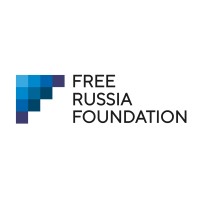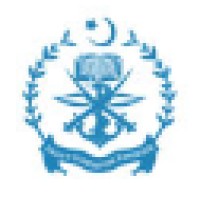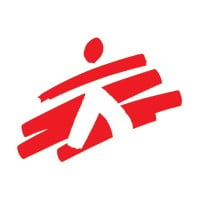
Free Russia Foundation Company Cyber Security Posture
4freerussia.orgThe Free Russia Foundation is a nonprofit, nonpartisan, nongovernmental U.S.-based organization, led by Russians abroad that seeks to be a voice for those who can’t speak under the repression of the current Russian leadership. We represent and coordinate the Russia diaspora. We pay special attention to those who have recently left Russia due to the considerable deterioration of the political and economic situation. We are focused on developing a strategic vision of Russia 'After Putin’ and ‘Without Putinism’ and concrete program for the transition period. We will continue to inform international policy-makers, mass media and opinion leaders on the real situation in Russia. We know firsthand the reality taking place in our country, and have suffered for this; therefore we understand this better than many other people. We maintain our extensive networks of key political, business and civil society leaders throughout Russia. This gives us access to news and events in real time. In addition, we are a hub for recently transplanted Russians and experts on every aspect of Russian society.
FRF Company Details
free-russia-foundation
35 employees
2190.0
none
Non-profit Organizations
4freerussia.org
Scan still pending
FRE_9358059
In-progress
Between 200 and 800
This score is AI-generated and less favored by cyber insurers, who prefer the TPRM score.
 FRF Global Score
FRF Global Score.png)

Free Russia Foundation Company Scoring based on AI Models
| Model Name | Date | Description | Current Score Difference | Score |
|---|---|---|---|---|
| AVERAGE-Industry | 03-12-2025 | This score represents the average cybersecurity rating of companies already scanned within the same industry. It provides a benchmark to compare an individual company's security posture against its industry peers. | N/A | Between 200 and 800 |
Free Russia Foundation Company Cyber Security News & History
| Entity | Type | Severity | Impact | Seen | Url ID | Details | View |
|---|---|---|---|---|---|---|---|
| Russian government and IT organizations | Ransomware | 100 | 8 | 8/2024 | FRE000081724 | Link | |
Rankiteo Explanation : Attack that could bring to a warDescription: The EastWind campaign utilized sophisticated backdoors to target Russian entities, compromising government and IT organizations' security. Malware delivered via phishing emails installed PlugY and GrewApacha backdoors on victims' systems. The ill-intended actors leveraged public services like Dropbox and LiveJournal for command and control, executing wide-ranging functions including data theft and system monitoring. The implication of APT groups APT27 and APT31 indicates the sharing of advanced cyber-espionage tools, which signifies a higher threat level due to the coordinated and resourceful nature of the attackers. The campaign resulted in the unauthorized access and potential exfiltration of sensitive information, posing a critical concern for national security and the affected institutions' operational integrity. | |||||||
Free Russia Foundation Company Subsidiaries

The Free Russia Foundation is a nonprofit, nonpartisan, nongovernmental U.S.-based organization, led by Russians abroad that seeks to be a voice for those who can’t speak under the repression of the current Russian leadership. We represent and coordinate the Russia diaspora. We pay special attention to those who have recently left Russia due to the considerable deterioration of the political and economic situation. We are focused on developing a strategic vision of Russia 'After Putin’ and ‘Without Putinism’ and concrete program for the transition period. We will continue to inform international policy-makers, mass media and opinion leaders on the real situation in Russia. We know firsthand the reality taking place in our country, and have suffered for this; therefore we understand this better than many other people. We maintain our extensive networks of key political, business and civil society leaders throughout Russia. This gives us access to news and events in real time. In addition, we are a hub for recently transplanted Russians and experts on every aspect of Russian society.
Access Data Using Our API

Get company history
.png)
FRF Cyber Security News
Free Russia Foundation breach under probe
Ukraine's Military Intelligence Service, or HUR, has taken credit for compromising major Russian aerospace and defense firm Tupolev in an attack ...
Russian pro-democracy nonprofit investigates alleged data breach by Kremlin-backed hackers
The U.S.-based Free Russia Foundation nonprofit said it is investigating a data breach after thousands of emails and documents supposedly ...
U.S. digital disarmament gives Russia free rein in cyberspace. Bad idea.
U.S. digital disarmament gives Russia free rein in cyberspace. Bad idea. In cyberspace, as in other domains, peace comes through strength. Colin ...
Kremlin-linked COLDRIVER crooks take pro-democracy NGOs for phishy ride
The malware, dubbed SPICA, comprises a robust list of features including shell command execution, browser cookie-stealing capabilities, and file ...
Opinion | U.S. digital disarmament gives Russia free rein in cyberspace. Bad idea.
Colin Ahern is New York State chief cyber officer. Mark Montgomery is a retired rear admiral and senior director of the Center on Cyber and ...
Indiana begins offering water systems free cyber assessments
The Indiana Office of Technology announced Tuesday that it now offers cybersecurity assessments to water and wastewater treatment facilities, a ...
Issue brief: A NATO strategy for countering Russia
This issue brief reviews Moscow's actions affecting the security of the Euro-Atlantic area and presents the enduring realities, objectives, and actions.
Autocrats United: How Russia and Iran Defy the U.S.-Led Global Order
International sanctions have inadvertently thrust Russia and Iran into direct competition within the shadowy world of illicit oil trade. As ...
Cyber defence
Cyberspace is contested at all times and malicious cyber events occur every day, from low-level to technologically sophisticated attacks. NATO ...

FRF Similar Companies

Transport for London
Every day, we help millions of people to make journeys across London: By Tube, bus, tram, car, bike – and more. People don’t associate us with journeys by river, on foot or via the air, but we help with that, too. Getting people to where they need to go has been our business for over 100 years, and

Fauji Foundation
A Trust for the Welfare of Ex-servicemen and their Families Fauji Foundation was established as a charitable trust in 1954, and operating on a completely self-sustaining basis, channels approximately 80% of the profits from commercial ventures into social protection programs that serve a benefici

Médecins Sans Frontières (MSF)
Médecins Sans Frontières (MSF) is an international, independent, medical humanitarian organisation working to provide medical assistance to people affected by conflict, epidemics, disasters, or exclusion from healthcare. Since our founding in 1971, we’ve grown to a global movement delivering human

Patriot Guard Riders
Mission Statement: “The Patriot Guard Riders is a 100% Volunteer, Federally registered 501(c)3 non-profit organization which ensures dignity and respect at memorial services honoring Fallen Military Heroes, First Responders and Honorably Discharged Veterans.” Vision Statement: The Patriot

Scouts en Gidsen Vlaanderen
Als jeugdbeweging richt scouting zich naar kinderen en jongeren tussen 6 en 18 jaar. Ruim 86.000 jongens en meisjes zijn lid van SCOUTS en GIDSEN VLAANDEREN. Samen met hun leiding beleven ze activiteiten per leeftijdstak in één van onze 500 plaatselijke groepen. Daarmee is SCOUTS en GIDSEN VLAANDERE

Colsubsidio
Colsubsidio es una organización privada sin ánimo de lucro, que pertenece al Sistema de Protección y Seguridad Social, su evolución ha estado marcada tanto por el reconocimiento de las personas como seres integrales con necesidades dinámicas, múltiples e interdependientes, como por las transfo

Frequently Asked Questions (FAQ) on Cybersecurity Incidents
FRF CyberSecurity History Information
Total Incidents: According to Rankiteo, FRF has faced 1 incidents in the past.
Incident Types: The types of cybersecurity incidents that have occurred include ['Ransomware'].
Total Financial Loss: The total financial loss from these incidents is estimated to be {total_financial_loss}.
Cybersecurity Posture: The company's overall cybersecurity posture is described as The Free Russia Foundation is a nonprofit, nonpartisan, nongovernmental U.S.-based organization, led by Russians abroad that seeks to be a voice for those who can’t speak under the repression of the current Russian leadership. We represent and coordinate the Russia diaspora. We pay special attention to those who have recently left Russia due to the considerable deterioration of the political and economic situation. We are focused on developing a strategic vision of Russia 'After Putin’ and ‘Without Putinism’ and concrete program for the transition period. We will continue to inform international policy-makers, mass media and opinion leaders on the real situation in Russia. We know firsthand the reality taking place in our country, and have suffered for this; therefore we understand this better than many other people. We maintain our extensive networks of key political, business and civil society leaders throughout Russia. This gives us access to news and events in real time. In addition, we are a hub for recently transplanted Russians and experts on every aspect of Russian society..
Detection and Response: The company detects and responds to cybersecurity incidents through {description_of_detection_and_response_process}.
Incident Details
Incident 1: Ransomware Attack
Title: {Incident_Title}
Description: {Brief_description_of_the_incident}
Date Detected: {Detection_Date}
Date Publicly Disclosed: {Disclosure_Date}
Date Resolved: {Resolution_Date}
Type: {Type_of_Attack}
Attack Vector: {Attack_Vector}
Vulnerability Exploited: {Vulnerability}
Threat Actor: {Threat_Actor}
Motivation: {Motivation}
Incident 2: Data Breach
Title: {Incident_Title}
Description: {Brief_description_of_the_incident}
Date Detected: {Detection_Date}
Date Publicly Disclosed: {Disclosure_Date}
Date Resolved: {Resolution_Date}
Type: {Type_of_Attack}
Attack Vector: {Attack_Vector}
Vulnerability Exploited: {Vulnerability}
Threat Actor: {Threat_Actor}
Motivation: {Motivation}
Common Attack Types: As of now, the company has not encountered any reported incidents involving common cyberattacks.
Identification of Attack Vectors: The company identifies the attack vectors used in incidents through {description_of_identification_process}.
Impact of the Incidents
Incident 1: Ransomware Attack
Financial Loss: {Financial_Loss}
Data Compromised: {Data_Compromised}
Systems Affected: {Systems_Affected}
Downtime: {Downtime}
Operational Impact: {Operational_Impact}
Conversion Rate Impact: {Conversion_Rate_Impact}
Revenue Loss: {Revenue_Loss}
Customer Complaints: {Customer_Complaints}
Brand Reputation Impact: {Brand_Reputation_Impact}
Legal Liabilities: {Legal_Liabilities}
Identity Theft Risk: {Identity_Theft_Risk}
Payment Information Risk: {Payment_Information_Risk}
Incident 2: Data Breach
Financial Loss: {Financial_Loss}
Data Compromised: {Data_Compromised}
Systems Affected: {Systems_Affected}
Downtime: {Downtime}
Operational Impact: {Operational_Impact}
Conversion Rate Impact: {Conversion_Rate_Impact}
Revenue Loss: {Revenue_Loss}
Customer Complaints: {Customer_Complaints}
Brand Reputation Impact: {Brand_Reputation_Impact}
Legal Liabilities: {Legal_Liabilities}
Identity Theft Risk: {Identity_Theft_Risk}
Payment Information Risk: {Payment_Information_Risk}
Average Financial Loss: The average financial loss per incident is {average_financial_loss}.
Commonly Compromised Data Types: The types of data most commonly compromised in incidents are {list_of_commonly_compromised_data_types}.
Incident 1: Ransomware Attack
Entity Name: {Entity_Name}
Entity Type: {Entity_Type}
Industry: {Industry}
Location: {Location}
Size: {Size}
Customers Affected: {Customers_Affected}
Incident 2: Data Breach
Entity Name: {Entity_Name}
Entity Type: {Entity_Type}
Industry: {Industry}
Location: {Location}
Size: {Size}
Customers Affected: {Customers_Affected}
Response to the Incidents
Incident 1: Ransomware Attack
Incident Response Plan Activated: {Yes/No}
Third Party Assistance: {Yes/No}
Law Enforcement Notified: {Yes/No}
Containment Measures: {Containment_Measures}
Remediation Measures: {Remediation_Measures}
Recovery Measures: {Recovery_Measures}
Communication Strategy: {Communication_Strategy}
Adaptive Behavioral WAF: {Adaptive_Behavioral_WAF}
On-Demand Scrubbing Services: {On_Demand_Scrubbing_Services}
Network Segmentation: {Network_Segmentation}
Enhanced Monitoring: {Enhanced_Monitoring}
Incident 2: Data Breach
Incident Response Plan Activated: {Yes/No}
Third Party Assistance: {Yes/No}
Law Enforcement Notified: {Yes/No}
Containment Measures: {Containment_Measures}
Remediation Measures: {Remediation_Measures}
Recovery Measures: {Recovery_Measures}
Communication Strategy: {Communication_Strategy}
Adaptive Behavioral WAF: {Adaptive_Behavioral_WAF}
On-Demand Scrubbing Services: {On_Demand_Scrubbing_Services}
Network Segmentation: {Network_Segmentation}
Enhanced Monitoring: {Enhanced_Monitoring}
Incident Response Plan: The company's incident response plan is described as {description_of_incident_response_plan}.
Third-Party Assistance: The company involves third-party assistance in incident response through {description_of_third_party_involvement}.
Data Breach Information
Incident 2: Data Breach
Type of Data Compromised: {Type_of_Data}
Number of Records Exposed: {Number_of_Records}
Sensitivity of Data: {Sensitivity_of_Data}
Data Exfiltration: {Yes/No}
Data Encryption: {Yes/No}
File Types Exposed: {File_Types}
Personally Identifiable Information: {Yes/No}
Prevention of Data Exfiltration: The company takes the following measures to prevent data exfiltration: {description_of_prevention_measures}.
Handling of PII Incidents: The company handles incidents involving personally identifiable information (PII) through {description_of_handling_process}.
Ransomware Information
Incident 1: Ransomware Attack
Ransom Demanded: {Ransom_Amount}
Ransom Paid: {Ransom_Paid}
Ransomware Strain: {Ransomware_Strain}
Data Encryption: {Yes/No}
Data Exfiltration: {Yes/No}
Ransom Payment Policy: The company's policy on paying ransoms in ransomware incidents is described as {description_of_ransom_payment_policy}.
Data Recovery from Ransomware: The company recovers data encrypted by ransomware through {description_of_data_recovery_process}.
Regulatory Compliance
Incident 1: Ransomware Attack
Regulations Violated: {Regulations_Violated}
Fines Imposed: {Fines_Imposed}
Legal Actions: {Legal_Actions}
Regulatory Notifications: {Regulatory_Notifications}
Incident 2: Data Breach
Regulations Violated: {Regulations_Violated}
Fines Imposed: {Fines_Imposed}
Legal Actions: {Legal_Actions}
Regulatory Notifications: {Regulatory_Notifications}
Regulatory Frameworks: The company complies with the following regulatory frameworks regarding cybersecurity: {list_of_regulatory_frameworks}.
Ensuring Regulatory Compliance: The company ensures compliance with regulatory requirements through {description_of_compliance_measures}.
Lessons Learned and Recommendations
Incident 1: Ransomware Attack
Lessons Learned: {Lessons_Learned}
Incident 2: Data Breach
Lessons Learned: {Lessons_Learned}
Incident 1: Ransomware Attack
Recommendations: {Recommendations}
Incident 2: Data Breach
Recommendations: {Recommendations}
Key Lessons Learned: The key lessons learned from past incidents are {list_of_key_lessons_learned}.
Implemented Recommendations: The company has implemented the following recommendations to improve cybersecurity: {list_of_implemented_recommendations}.
References
Additional Resources: Stakeholders can find additional resources on cybersecurity best practices at {list_of_additional_resources}.
Investigation Status
Incident 1: Ransomware Attack
Investigation Status: {Investigation_Status}
Incident 2: Data Breach
Investigation Status: {Investigation_Status}
Communication of Investigation Status: The company communicates the status of incident investigations to stakeholders through {description_of_communication_process}.
Stakeholder and Customer Advisories
Incident 1: Ransomware Attack
Stakeholder Advisories: {Stakeholder_Advisories}
Customer Advisories: {Customer_Advisories}
Incident 2: Data Breach
Stakeholder Advisories: {Stakeholder_Advisories}
Customer Advisories: {Customer_Advisories}
Advisories Provided: The company provides the following advisories to stakeholders and customers following an incident: {description_of_advisories_provided}.
Initial Access Broker
Incident 1: Ransomware Attack
Entry Point: {Entry_Point}
Reconnaissance Period: {Reconnaissance_Period}
Backdoors Established: {Backdoors_Established}
High Value Targets: {High_Value_Targets}
Data Sold on Dark Web: {Yes/No}
Incident 2: Data Breach
Entry Point: {Entry_Point}
Reconnaissance Period: {Reconnaissance_Period}
Backdoors Established: {Backdoors_Established}
High Value Targets: {High_Value_Targets}
Data Sold on Dark Web: {Yes/No}
Monitoring and Mitigation of Initial Access Brokers: The company monitors and mitigates the activities of initial access brokers through {description_of_monitoring_and_mitigation_measures}.
Post-Incident Analysis
Incident 1: Ransomware Attack
Root Causes: {Root_Causes}
Corrective Actions: {Corrective_Actions}
Incident 2: Data Breach
Root Causes: {Root_Causes}
Corrective Actions: {Corrective_Actions}
Post-Incident Analysis Process: The company's process for conducting post-incident analysis is described as {description_of_post_incident_analysis_process}.
Corrective Actions Taken: The company has taken the following corrective actions based on post-incident analysis: {list_of_corrective_actions_taken}.
Additional Questions
General Information
Ransom Payment History: The company has {paid/not_paid} ransoms in the past.
Last Ransom Demanded: The amount of the last ransom demanded was {last_ransom_amount}.
Last Attacking Group: The attacking group in the last incident was {last_attacking_group}.
Incident Details
Most Recent Incident Detected: The most recent incident detected was on {most_recent_incident_detected_date}.
Most Recent Incident Publicly Disclosed: The most recent incident publicly disclosed was on {most_recent_incident_publicly_disclosed_date}.
Most Recent Incident Resolved: The most recent incident resolved was on {most_recent_incident_resolved_date}.
Impact of the Incidents
Highest Financial Loss: The highest financial loss from an incident was {highest_financial_loss}.
Most Significant Data Compromised: The most significant data compromised in an incident was {most_significant_data_compromised}.
Most Significant System Affected: The most significant system affected in an incident was {most_significant_system_affected}.
Response to the Incidents
Third-Party Assistance in Most Recent Incident: The third-party assistance involved in the most recent incident was {third_party_assistance_in_most_recent_incident}.
Containment Measures in Most Recent Incident: The containment measures taken in the most recent incident were {containment_measures_in_most_recent_incident}.
Data Breach Information
Most Sensitive Data Compromised: The most sensitive data compromised in a breach was {most_sensitive_data_compromised}.
Number of Records Exposed: The number of records exposed in the most significant breach was {number_of_records_exposed}.
Ransomware Information
Highest Ransom Demanded: The highest ransom demanded in a ransomware incident was {highest_ransom_demanded}.
Highest Ransom Paid: The highest ransom paid in a ransomware incident was {highest_ransom_paid}.
Regulatory Compliance
Highest Fine Imposed: The highest fine imposed for a regulatory violation was {highest_fine_imposed}.
Most Significant Legal Action: The most significant legal action taken for a regulatory violation was {most_significant_legal_action}.
Lessons Learned and Recommendations
Most Significant Lesson Learned: The most significant lesson learned from past incidents was {most_significant_lesson_learned}.
Most Significant Recommendation Implemented: The most significant recommendation implemented to improve cybersecurity was {most_significant_recommendation_implemented}.
References
Most Recent Source: The most recent source of information about an incident is {most_recent_source}.
Most Recent URL for Additional Resources: The most recent URL for additional resources on cybersecurity best practices is {most_recent_url}.
Investigation Status
Current Status of Most Recent Investigation: The current status of the most recent investigation is {current_status_of_most_recent_investigation}.
Stakeholder and Customer Advisories
Most Recent Stakeholder Advisory: The most recent stakeholder advisory issued was {most_recent_stakeholder_advisory}.
Most Recent Customer Advisory: The most recent customer advisory issued was {most_recent_customer_advisory}.
Initial Access Broker
Most Recent Entry Point: The most recent entry point used by an initial access broker was {most_recent_entry_point}.
Most Recent Reconnaissance Period: The most recent reconnaissance period for an incident was {most_recent_reconnaissance_period}.
Post-Incident Analysis
Most Significant Root Cause: The most significant root cause identified in post-incident analysis was {most_significant_root_cause}.
Most Significant Corrective Action: The most significant corrective action taken based on post-incident analysis was {most_significant_corrective_action}.
What Do We Measure?
















Every week, Rankiteo analyzes billions of signals to give organizations a sharper, faster view of emerging risks. With deeper, more actionable intelligence at their fingertips, security teams can outpace threat actors, respond instantly to Zero-Day attacks, and dramatically shrink their risk exposure window.
These are some of the factors we use to calculate the overall score:
Identify exposed access points, detect misconfigured SSL certificates, and uncover vulnerabilities across the network infrastructure.
Gain visibility into the software components used within an organization to detect vulnerabilities, manage risk, and ensure supply chain security.
Monitor and manage all IT assets and their configurations to ensure accurate, real-time visibility across the company's technology environment.
Leverage real-time insights on active threats, malware campaigns, and emerging vulnerabilities to proactively defend against evolving cyberattacks.




